
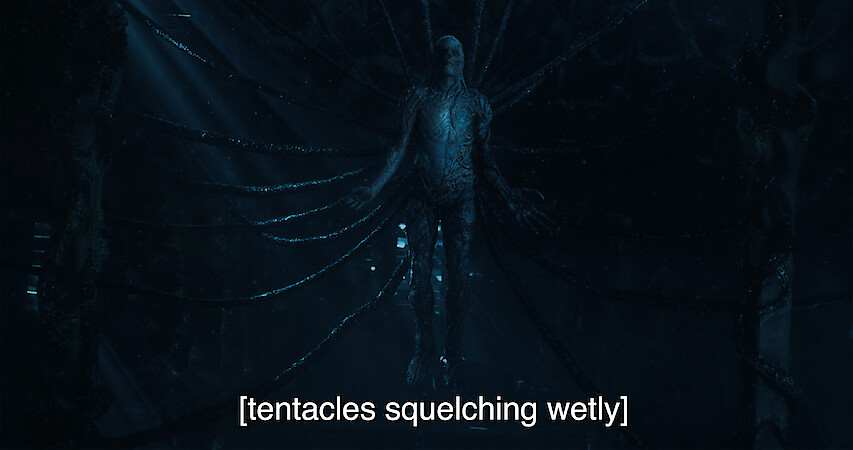




Warning: This article contains spoilers from Stranger Things Season 4, Volume 2.
When Vecna attacks hapless cheerleader Chrissy Cunningham (Grace Van Dien) in Stranger Things’ Season 4 premiere, the closed caption “[wet squelch]” appears on-screen. Not only does that subtitle describe exactly the sound we’re hearing at that moment, it’s also — let’s face it — just highly entertaining to read.
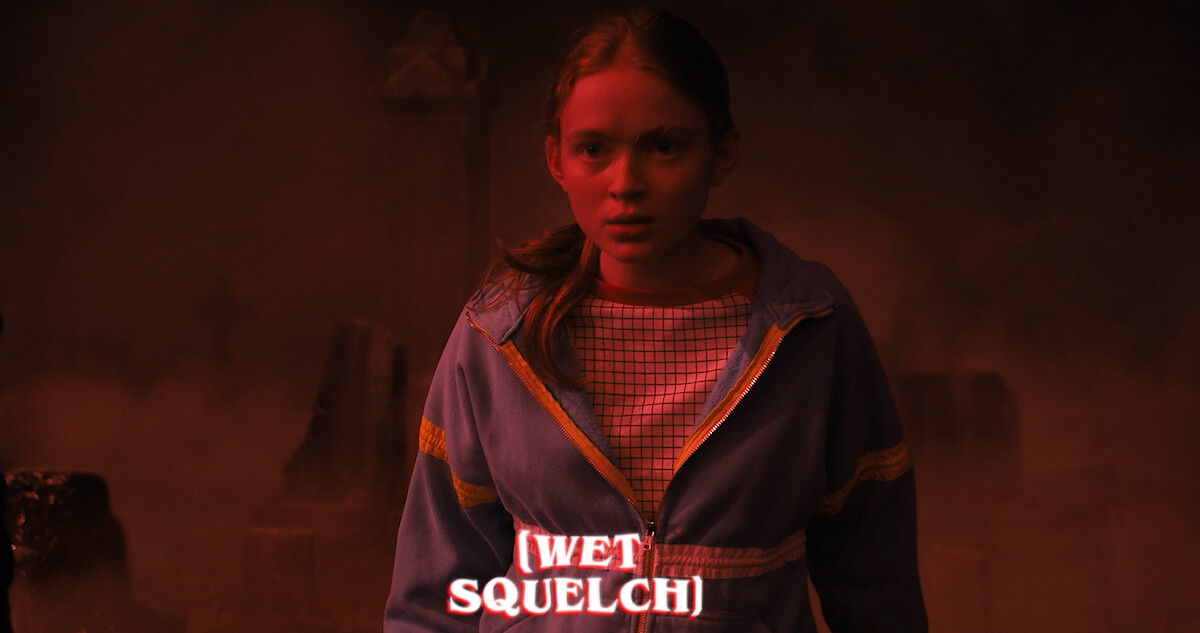
Curious about the very strange and intentional subtitles accentuating the “[tender emotion]” of our Hawkins heroes? We chatted with the masterminds behind them: English SDH (subtitles for the Deaf and hard of hearing) author Jeff T. and English SDH QCer (quality checker) Karli Webster. While Jeff T. is responsible for bringing “[eldritch thrumming]” into the world, Webster provides a second perspective to make sure the descriptors are clear, accurate and relatable for audiences. Jeff T. previously served in Webster’s role for Stranger Things Season 3 (we have him to thank for all the “chittering”), while Webster first descended upon Hawkins for Season 4.
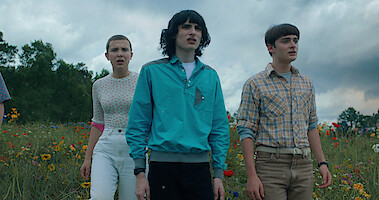
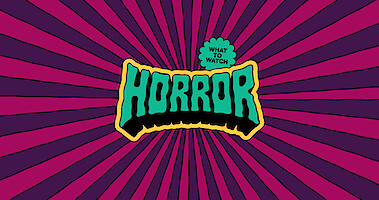
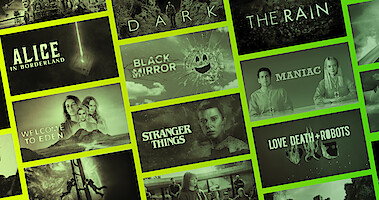
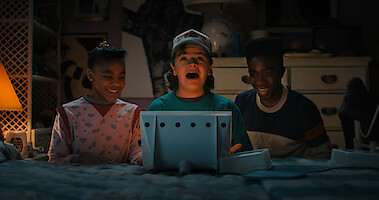
Here, the brains behind “[Eleven pants]” break down the Dungeons & Dragons Easter eggs in their word choices, their personal favorite captions and the importance of viscerally explaining the audio you’re hearing so everyone can bask in Eddie Munson’s (Joe Quinn) “[ferocious guitar riff].”
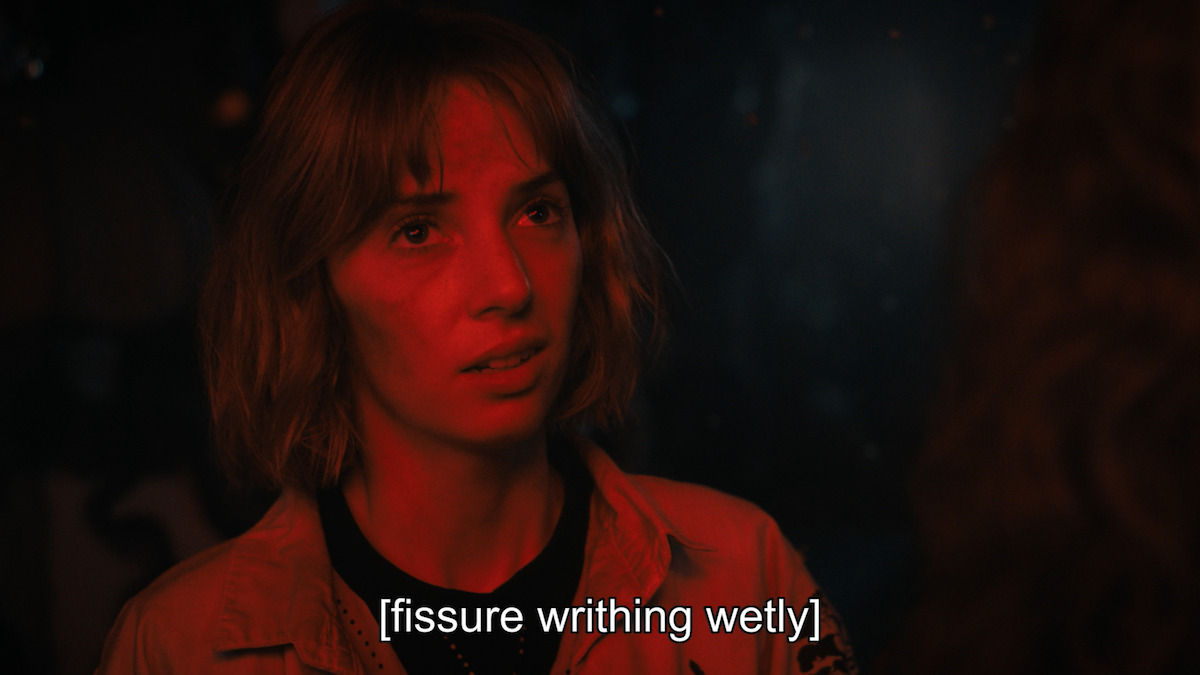
Thank you for glorious captions like, “tentacles undulating moistly,” “fissure writhing wetly” and “Nancy bandaging wetly.”
Jeff T.: No, thank you. The auditory component is so crucial to the effect of this season. [Series co-creators] the Duffers know exactly what they’re playing with. They know the genre they’re in, they know their historical antecedents, they know the history of horror movies and creature features. And in all those movies, sound design is so crucial. We wanted to try to accurately reflect that in our subtitles for the Deaf and hard of hearing because this is their primary avenue for access to those sensory inputs. There’s just something “classic monster movie horror” about something slimy and wet. They gave us a lot of fun things to play with here. I’m extremely online, and I saw people were like, “Why is everything wetly?” And then, I saw a comment that was like, “God, if they put moistly in...” And I was like, “Well, bad news for you.” [laughs]
But actually great news.
Karli Webster: It’s hilarious the response that those types of words have received. You see people who have this weird, uncomfortable feeling towards the word moistly, but that’s the feeling that we want people to feel in that moment. It is an uncomfortable sound.
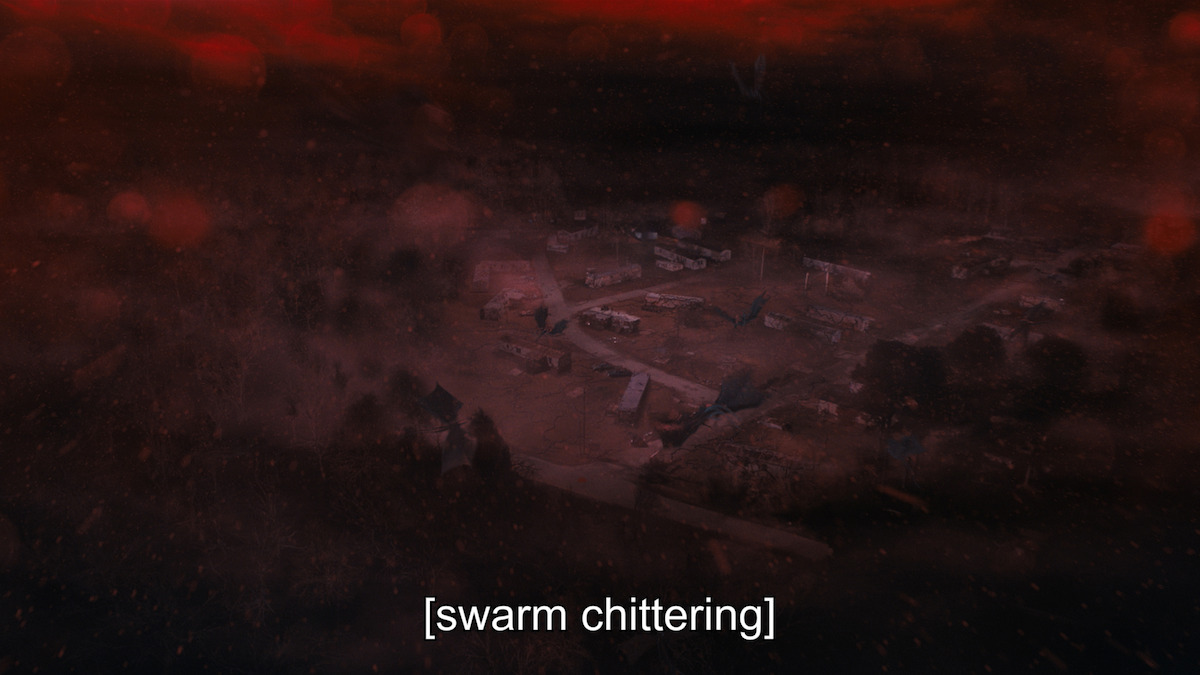
Jeff, you joined in Season 3, and Karli, this is your first season with Stranger Things. Do you remember what the process was like to come onto the show?
Webster: I’m a massive fan of the show and have been since Season 1. And so, to be honest with you, in all the six, seven years I’ve done this job and worked with Netflix, I really was hoping for the day that this request came. It’s one of the shows where you hope that you’ll get the opportunity to work on it, especially in the role of doing SDH subtitles, because the sound of the show is what makes it as great as what it is. And I want the Deaf community to be able to experience that and follow the journey that we go on when we watch the show. When the request came up for this show, I knew that when it came out, I would be nine months pregnant. And I knew that I’d be delivering my baby, potentially.
Jeff T.: Karli had a little Stranger baby.
Webster: But because of the nature of what this show is, there was no way that I could say no to it. Luckily, the timing worked out perfectly, but this show is a global phenomenon, and I feel very, very proud that we got to work on it.
A lot of people now want to turn the captions on for their own fun just to see what you both came up with.
Webster: We’ve got to thank Jeff for a lot of that, though, because he’s the reason that the subtitles work with the genre so well. He genuinely is an expert in that.
Jeff T.: Yeah. This was actually the perfect project for me, because I’m a huge sci-fi fantasy nerd. I’ve been playing D&D for about 20 years now. I put a ton of Dungeons & Dragons Easter eggs into the subtitles.
What were they?
Jeff T.: People really focused on “eldritch thrumming.” Eldritch is that sort of arcane, unknowable, vaguely threatening, otherworldly presence. I am going to reveal the depths of how nerdy I am — I apologize in advance — but it’s also the signature spell for a warlock in Dungeons & Dragons. It’s called eldritch blast. The lore of a warlock in Dungeons & Dragons is that they make the deal with an otherworldly power, whether it’s a demon or a powerful fairy lord. So I was like, “Oh, this is the perfect term for that sense of otherworldly power intruding into our world.”
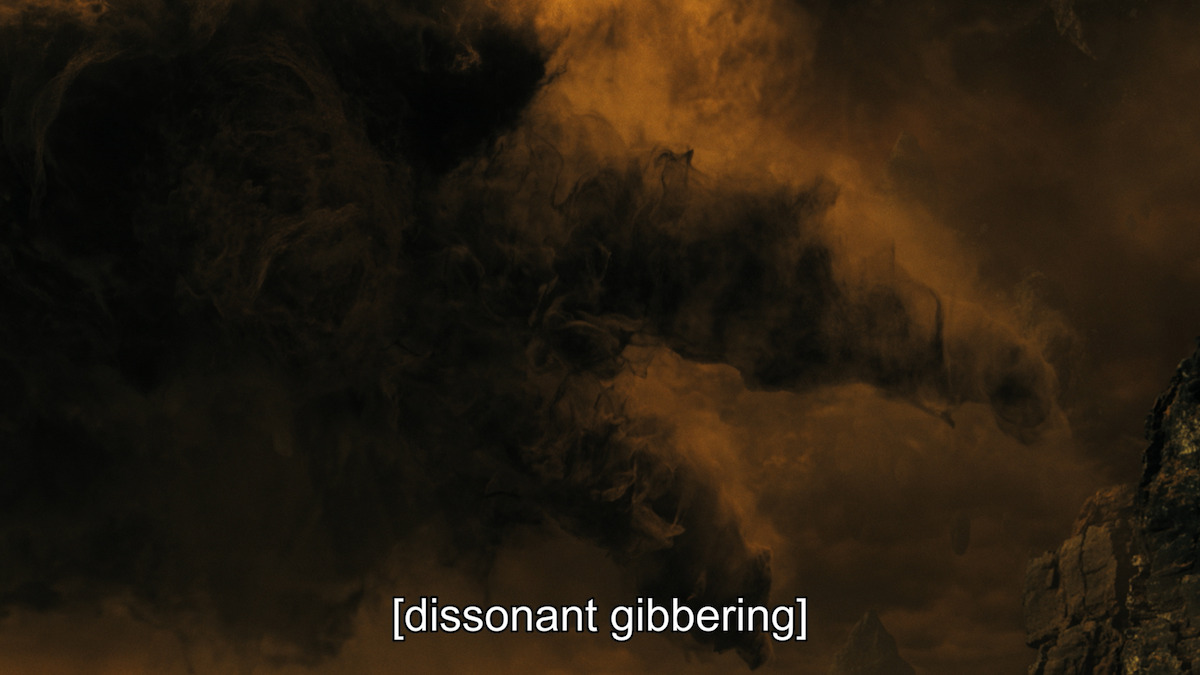
And in the scene where Henry/Vecna/One [Jamie Campbell Bower] is creating the Mind Flayer, I used a tag, “dissonant gibbering.” Dissonant whispers is a spell that bards can use to break apart somebody’s mind [in Dungeons & Dragons]. It’s that sense of madness creeping in at the edges of your awareness. And “gibbering” is a reference to a monster called a gibbering mouther, which is a nightmarish blob of flesh and multiple mouths all wailing and gnashing their teeth. I was like, “Yeah, that sounds like a good moment for a mind breaking in two.” [laughs]

Were you ever stumped trying to think of a caption for a scene this season?
Jeff T.: Yeah, people are like, “How many words convey a reachable word to describe the various synth music?” And I definitely had a few where I was like, “I don’t want to recycle some.” But personally, I’m very good friends with a Hollywood orchestrator. He doesn’t work on Stranger Things, but I talk to him about things like leitmotifs and [ask,] “How do you guys handle fill music?” There are a couple of leitmotifs that I tried to use consistent SDH cues on just to get it in people’s heads. But there were a few where I was like, “How many times can I say ‘emotional’?”
You got “industrial” in there, too.
Jeff T.: Yes. It’s heavy, clanging, oppressive and tool heavy, which fits perfectly with that moment. I think the first time I used it was when the kids go into the Upside Down and they’re executing their plan. It is a very oppressive moment, when the atmosphere of the sound weighs down on you. And I really wanted to be like, “Well, that’s what it is,” which is part of the challenge of what we do. We strive for evocative. We strive for precise. And we also strive for concise.
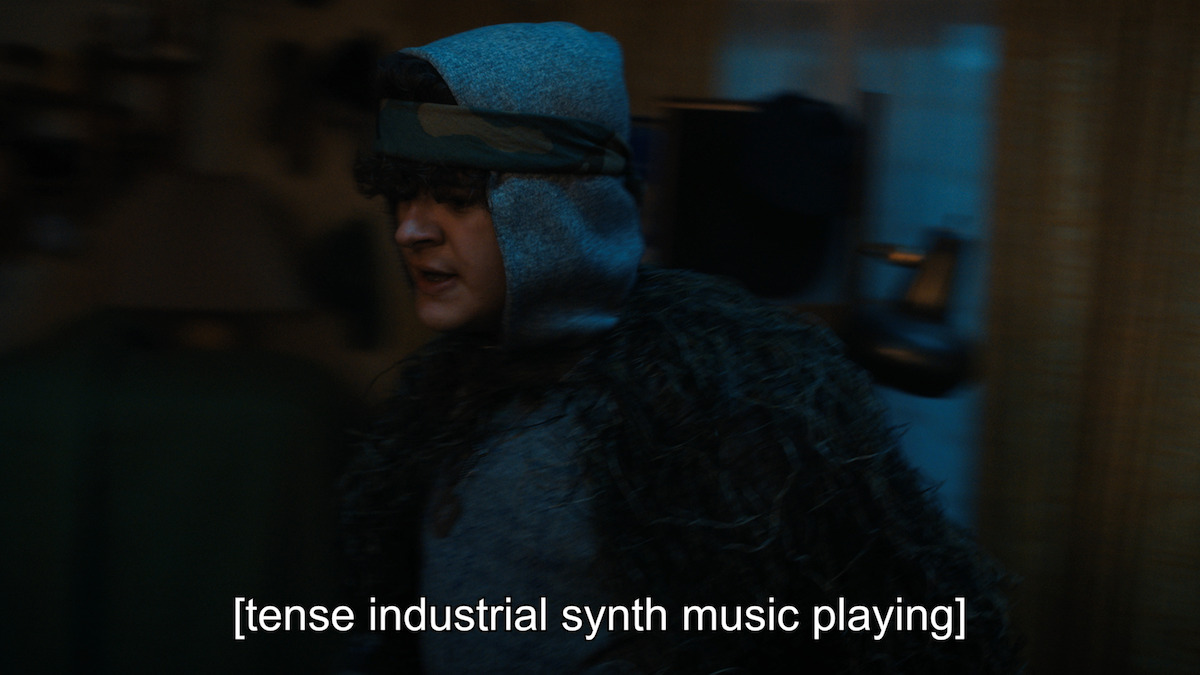
What else makes for an excellent subtitle?
Jeff T.: We have space limitations, and we have reading speed limitations, in addition to aesthetic considerations, like, “Is this language appropriate?” I think every conscientious subtitler has a word bank of their cultivation. I have an index of “genre,” “intensity,” “complexity.” So we have to try to pick the right word from that. And “industrial” just was perfect for a lot of those moments of oppressive, weighty, heavy synth music.
Webster: Just to give you a bit of an insight into what goes into choosing descriptors, obviously we’re trying to encompass the genre, the feel of the moment. But when we’re saying something that’s specific to the Deaf and hard of hearing audience, it’s never just for one part of that audience, because they don’t split subtitles just for people who [have been] Deaf since birth. There are people who’ve lost their hearing as their life has progressed or people with partial hearing loss. These subtitles have to be there for all of those levels of hearing loss. So we really tried to strike a balance between descriptors that will describe something well for someone who’s never heard or that will recall an emotion or a feeling for the hard of hearing audience that they did feel perhaps when they were able to hear music, as well as other sound effects.

How does it feel knowing that people are obsessing over the captions you’ve created? Even the Duffers and Stranger writers are sharing them online.
Webster: I think that it’s great that these subtitles have been so well received for other audiences and that people are switching them on actively that wouldn’t usually do so. But we have to remember that, first and foremost, this is an accessibility feature. We’re creating something for an audience that otherwise will not be involved as well as they are, with something that we’ve created.
Jeff T.: Everybody loves a good meme, right? I have a number of them saved on my phone. One of them is the “Eleven pants.” Or somebody just did “less squelching” in the Stranger Things font. But at the end of the day, I hope people understand that this is about accessibility and expanding who gets to enjoy the narrative that we foreground in the culture. Because that’s what SDH is.
Webster: There have also been some conversations about, “Why are we getting told what we can already hear?” Firstly, we’re so grateful that everyone’s taking an interest and it’s allowing people to enjoy the show on another level. But you weren’t the intended initial audience. I think it’s important to realize that. The Deaf community can benefit so much from subtitles that are described this way. Jeff let me know that there are people who are part of the Deaf community [on Reddit] saying that these subtitles have allowed them to experience the show in a different way. And that’s really positive for us to see.
Jeff T.: My best friend is hard of hearing in one ear, and he came up to me and he was like, “This is one of the first times, if [not] the only time, I’ve just felt fully immersed in a show without having to turn the volume all the way up.” And I was like, “I don’t know how to tell you anything, because I’m crying right now.”
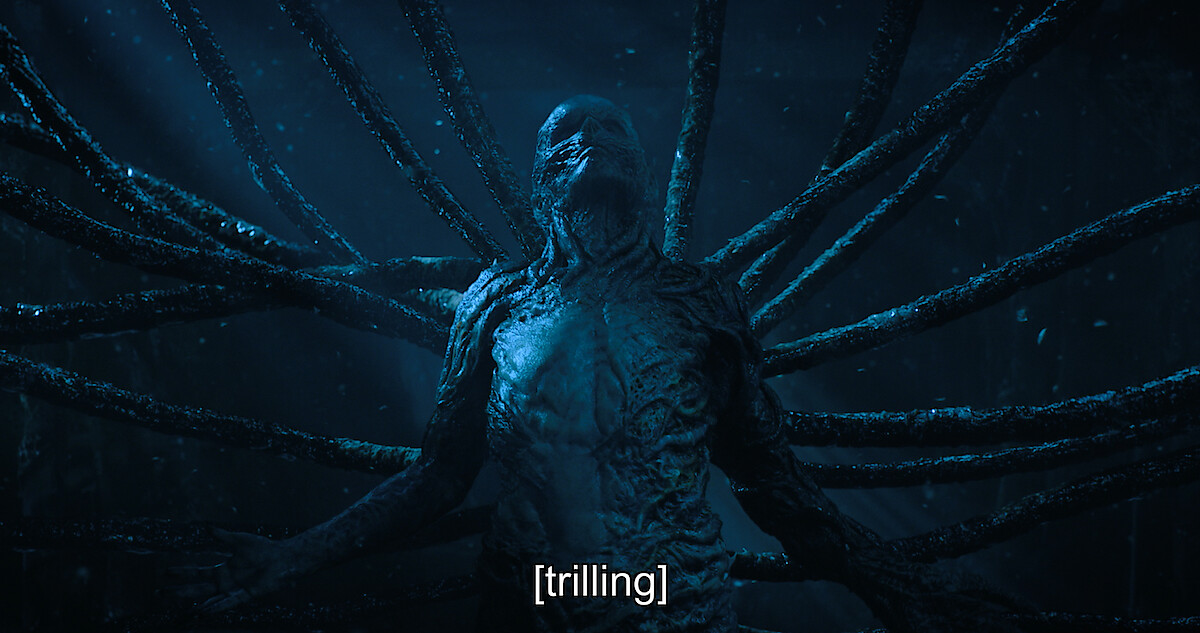
What’s your process for writing the captions? Do you watch the episode straight through and take notes?
Jeff T.: Every subtitler has their own process for this. Some people like to watch it all the way through once, like you said, to immerse yourself in the episode. I personally will do one watch through as I go, and then I’ll do another watch through to fix things up. The last watch through I always do is a watch through without any sound because, that way, if I turned off the sound and I’m just watching my subtitles, I go, “OK, this is how the intended audience is experiencing this. Is this effective?” That’s actually helped me a lot because, especially in Stranger Things, the tone shifts and all of those things are foreshadowed by the music and by stingers. People were giving me a lot of, “What is a stinger?” There are a lot of stingers in this show, and those moments elicit a moment of dread or surprise or hope or awe or whatever. And without that audio cue, the Deaf and hard of hearing audience doesn’t have access to that.
Webster: I work on the file as I go along, and then I would watch it again just to do any fixing up. Especially because we work on various cuts, and for this show and all the shows that we do, we need the final audio to be what our subtitles are based on. Because we don’t make our final decision until we’re working on the final cut.

So you watch different cuts and you have your notes, and then you get the last version and finalize?
Jeff T.: Yeah, I would say so. I remember I latched onto one cue in particular because it’s my sweet baby, Will [Noah Schnapp]. At the very end of the season, he starts rubbing the back of his neck. The first couple of passes we had, there was no audio cue on there. But then our very final pass, they included that whispering sinister trilling. And I was like, “Oh, they very specifically wanted that to be emphasized.” They added it back in the final cut because they’re like, “This is plot relevant. This is something that we are putting in.” So I made sure to add that back in on the final pass.
Has there ever been a caption that had to be left on the cutting room table that gutted you or the Duffers said, “No, we can’t say that”? How much free rein do you have?
Webster: We have complete free rein, as far as I’m aware. I don’t think that there was anything that we were told that we couldn’t add. As far as production being involved in telling us how far we can take it, that didn’t happen.
I have to ask you about “tentacles wetly squelching,” because you don’t hear the word “squelching” every day. Did you have any alternate words for that one?
Jeff T.: I don’t know if I told you this, Karli, but at one point I considered “pustulant oozing,” and I discarded that because I said, “No, I don’t want an angry mob outside my house.” But I didn’t have a backup for “squelching” because it’s the perfect combination of that trinity that I’ve mentioned earlier. We want evocative, we want precise and we want concise. One thing that I started doing lately is I watch ASMR streams on YouTube, and I look at the words they use. And I go, “What are these words that elicit this visceral response?” And “squelch” is just — you can feel it when you hear that, right? You can feel mud oozing between your fingers or between your toes. And I really wanted that palpable sense.
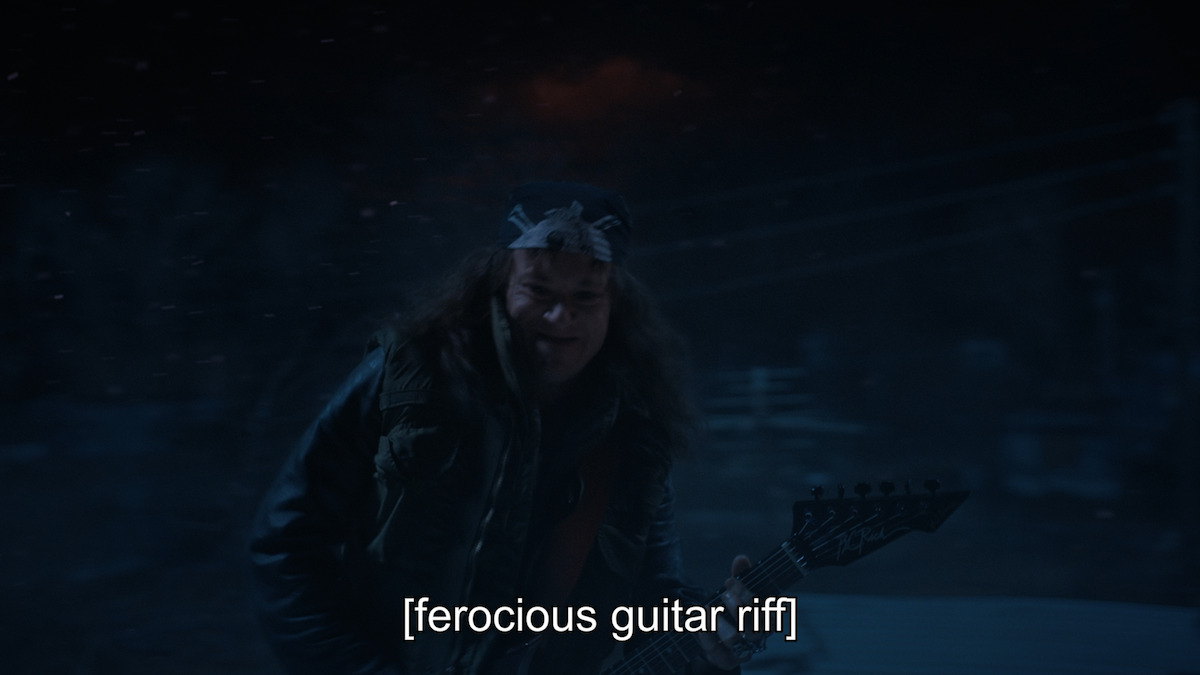
What are your personal favorites of the subtitles you wrote this season?
Jeff T.: Honestly, I didn’t see a lot of people talking about it, and it’s not a flashy one. But going back to the leitmotifs, I really liked using “tender emotional music plays.” Because it’s like, “Oh, it’s Joyce and Hopper,” and it connects these moments of intimacy between characters. Our captions don’t have to be flashy, but they have to speak to the truth of the moment, and I really enjoyed using that consistently.
Webster: I have to say, it’s got to be the ones that surround Eddie, like the “ferocious guitar riff” and the “shreds guitar solo” because it just gives him his moment, and I feel like he totally deserves it. But I’m a sucker for music, too. So most of the ones that describe music are the ones that I tend to love.
Jeff T.: Justice for Eddie.
Webster: 100%.
This interview has been edited for length and clarity.





